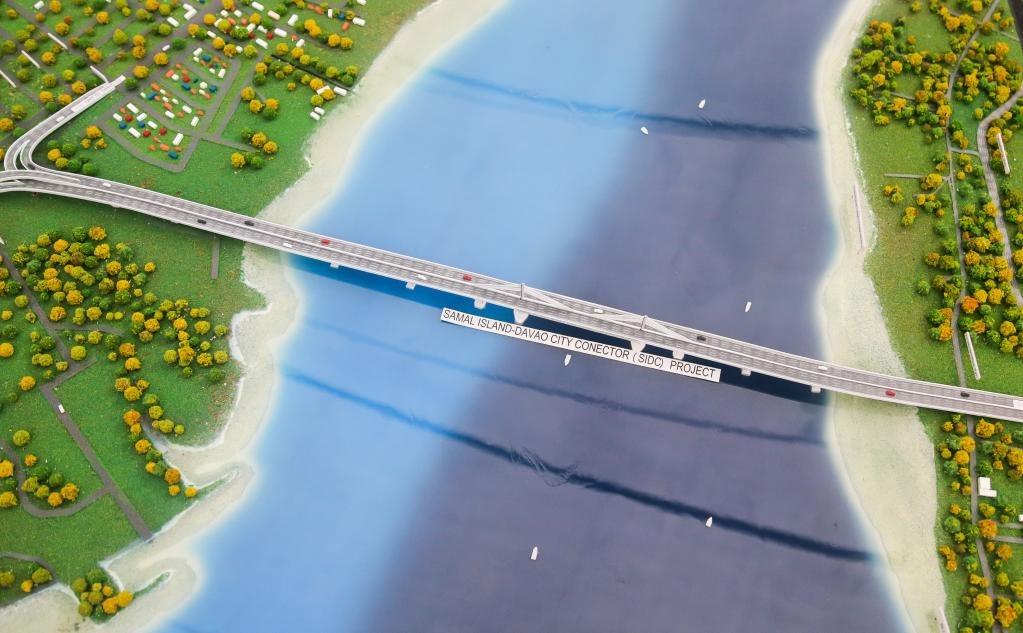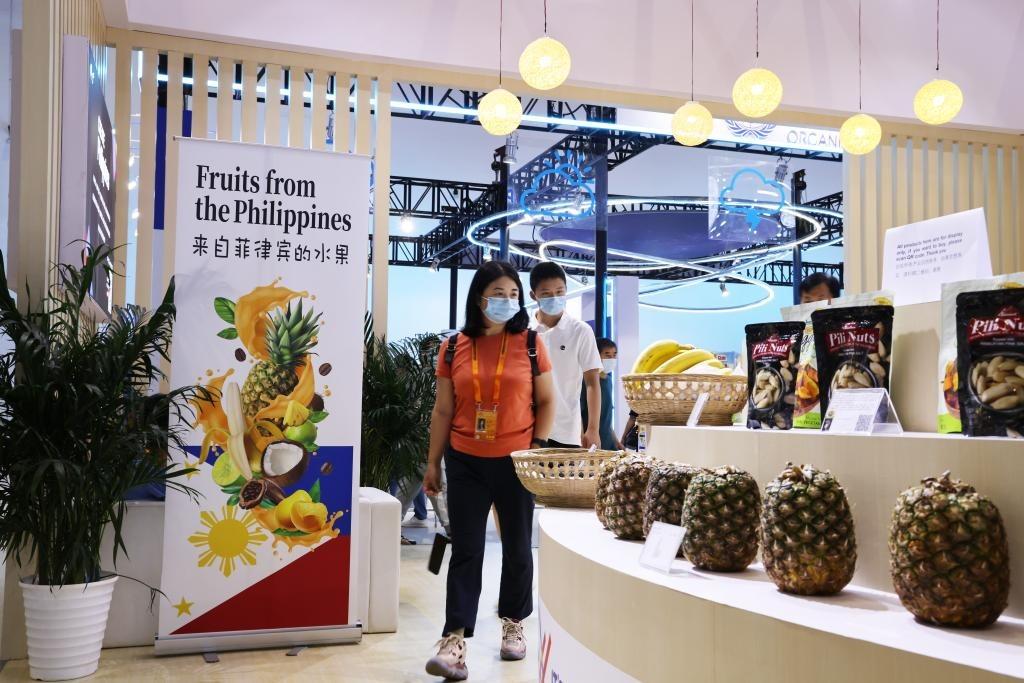 A scale model of the China-funded Samal Island-Davao City Connector Bridge is seen during its groundbreaking ceremony in Davao City, the Philippines, October 27, 2022. (PHOTO / XINHUA)
A scale model of the China-funded Samal Island-Davao City Connector Bridge is seen during its groundbreaking ceremony in Davao City, the Philippines, October 27, 2022. (PHOTO / XINHUA)
MANILA - "It is a milestone for the Philippines" as the Regional Comprehensive Economic Partnership (RCEP) enters into force for the Southeast Asian country, a Philippine trade official said on Friday.
"We are now all set when it comes to its implementation," said Allan Gepty, the Philippine lead negotiator in RCEP talks, stressing his country will gain benefits and opportunities in trade, goods, services, and investments in RCEP.
We are able to secure better market access for key products in China, South Korea, and Japan. In addition, we have other guaranteed market access for services for Filipinos.
Allan Gepty, the Philippine lead negotiator in RCEP talks
"We are able to secure better market access for key products in China, South Korea, and Japan. In addition, we have other guaranteed market access for services for Filipinos," Gepty said at a press conference.
ALSO READ: President Marcos pushes for Philippines-EU FTA
The RCEP agreement was signed in November 2020. It went into force on Jan. 1, 2022, for China and nine other countries. The rest of the signatories implemented the trade deal in the following months after ratification.
The Philippines was the last country to ratify the world's largest FTA deal, which eases market access to countries including 10 ASEAN members, China, Japan, South Korea, Australia and New Zealand.
READ MORE: RCEP agreement comes into force for all 15 members
A study by the Philippine Institute for Development Studies estimated that the Philippines' GDP would increase by 2.02 percent through its participation in RCEP.
As Trade and Industry assistant secretary, Gepty said the challenge now is that Philippine stakeholders understand how to trade and do business in the region.
"Our professionals, our service providers, must understand how to seize the opportunities offered by the agreement, and for them to know how to invest in the RCEP region and protect their investments," he said.
 People visit the booth of the Philippines at the China National Convention Center during the 2022 China International Fair for Trade in Services (CIFTIS) in Beijing, capital of China, September 4, 2022. (PHOTO / XINHUA)
People visit the booth of the Philippines at the China National Convention Center during the 2022 China International Fair for Trade in Services (CIFTIS) in Beijing, capital of China, September 4, 2022. (PHOTO / XINHUA)
Philippine Trade and Industry Secretary Alfredo Pascual said on Friday the government was undertaking a campaign to raise public awareness of the benefits of RCEP.
"RCEP will reinforce micro-small, medium enterprises (MSMEs) participation in the global value chain network through improved market access for goods and services," he said.
READ MORE: Philippines, US, Japan to hold first-ever joint coast guard drill
Pascual encouraged local stakeholders to take advantage of benefits of an open, inclusive trading system expected to increase regional trade and investment.
The Department of Finance (DOF) believes the Philippines will benefit from economic and technical cooperation to strengthen its competitiveness.
"Zero or lower import tariffs for Philippine exports such as agricultural products, automotive parts, and garments would give the country more access to bigger product markets," the DOF said in a statement.


